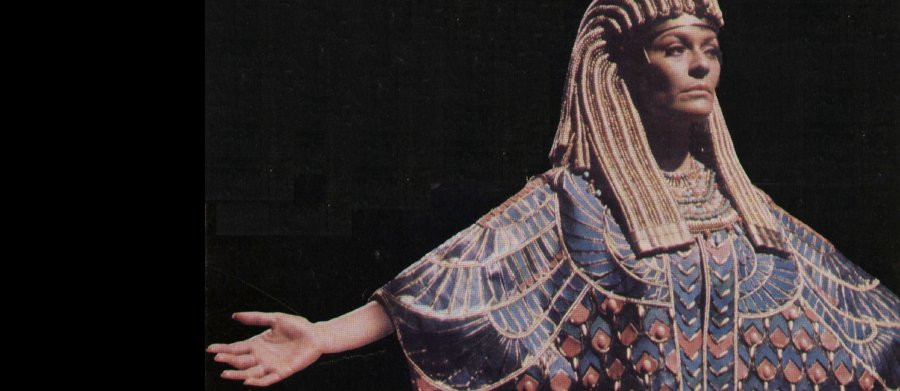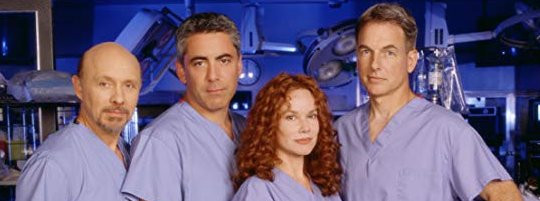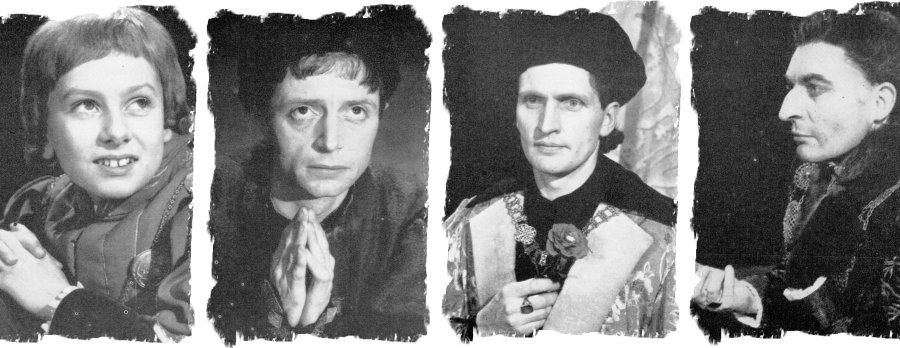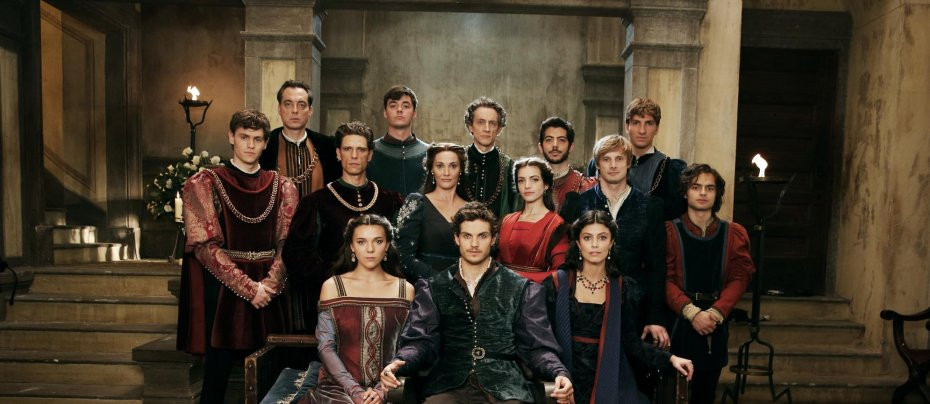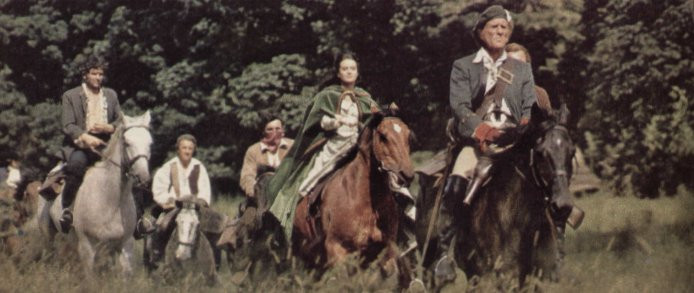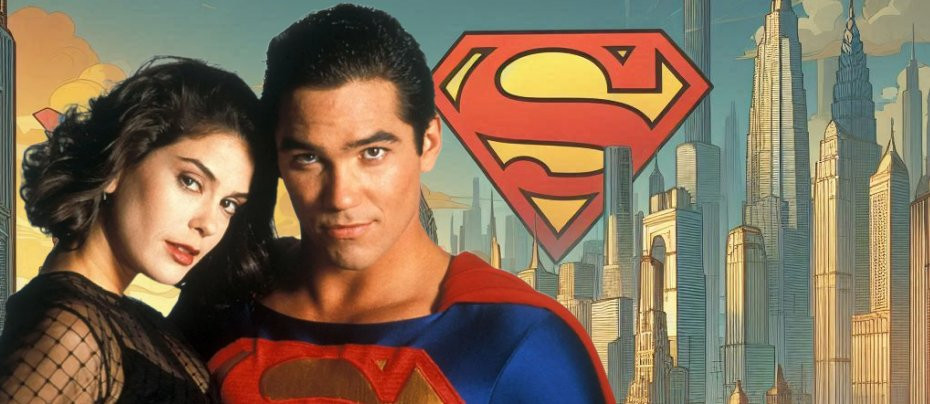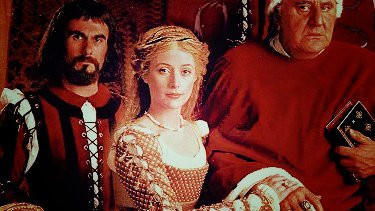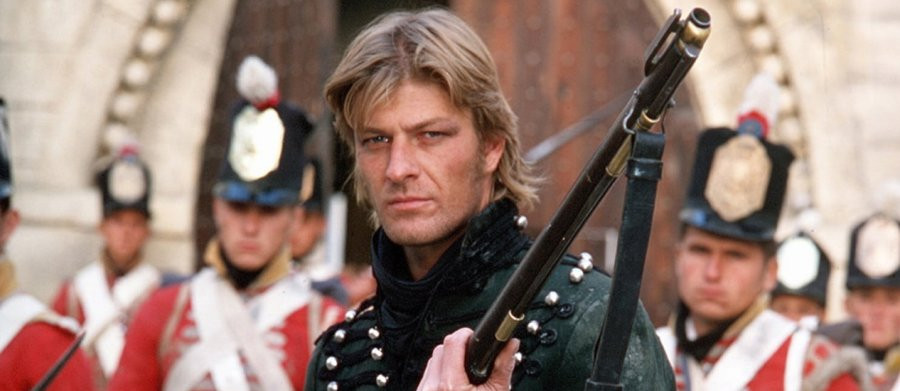
Sharpe
1994 - United KingdomIt has become a standing joke on the internet that, in any television or film production, any character played by Sean Bean is going to be killed.
It was not always so. For example, he survived as real-life SAS Sergeant Andy McNab in Bravo Two Zero, and, amazingly, as the McNab fantasist Spence in Ronin. Above all, against incredible odds, he survived no less than 16 feature length episodes of Sharpe as Lieutenant Colonel Richard Sharpe, Wellington's favourite enforcer in the Peninsular War.
True, he had to come back from the dead a couple of times, but he was never completely killed, despite the best efforts of Napoleon's entire Grande Armee to that end.
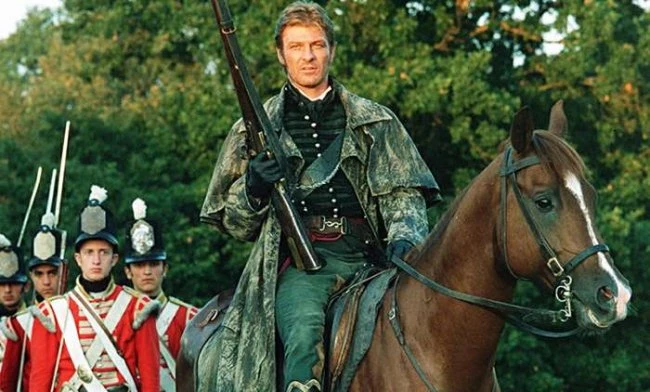
Most of the episodes are broadly faithful adaptations of the 24 Sharpe novels of Bernard Cornwell. There are differences between the show and the novels, the biggest being the character of Sharpe himself. In the books, he starts out as a fairly terse, self-contained Londoner, formidable in battle but otherwise slightly unsure of himself, as would surely be the case with a regimental officer risen from the ranks in those class-conscious days.
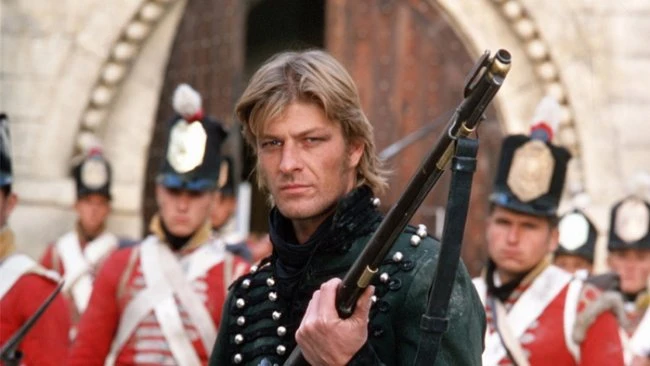
Bean transforms him into a passionate, self-confident Yorkshireman, perhaps with a bit of a chip on his shoulder but perhaps also sometimes a bit too cocky for his own good. The show basically ignored the potential for a Jane Austen-style study of the subtleties of social mobility in favour of a rowdy, transgressive working-class hero - and audiences loved it.
So, it seems, did Cornwell. Although Bean's portrayal is not how he wrote Sharpe in the early novels, there are suggestions that it influenced how he wrote him in the books that have followed since the series first began to be shown.
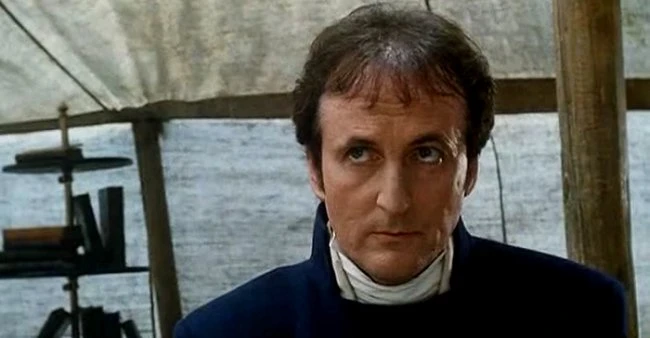
Apart from Sharpe's tendency to be present at an extraordinary number of decisive moments in history, Cornwell presents us with a fairly credible, if unusual, career of a soldier on active service during the Napoleonic Wars. Promoted from the ranks for saving the life of the future Duke of Wellington, Sharpe rises gradually to the command of a line infantry battalion, but there are setbacks along the way. Without the money or the connections to buy commissions, he has to rely on promotion on merit - which is rare, and even when granted sometimes reversed as battlefield promotions may not be made permanent. Sharpe therefore has to undertake more than his share of special missions to keep Wellington's favour. Wellington (played by David Troughton, later Hugh Fraser) respects Sharpe but exploits him ruthlessly, and Sharpe knows it.
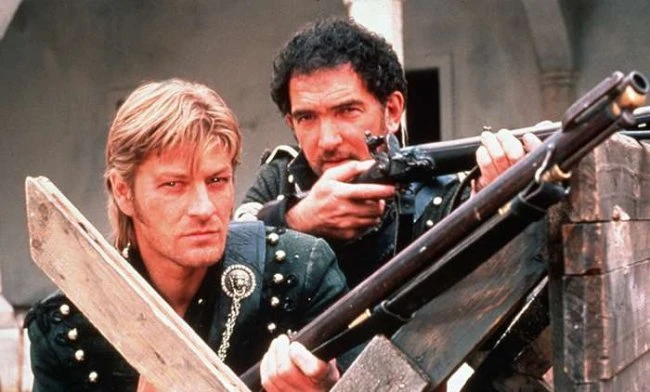
He is helped by a section of elite Riflemen from the green jacketed 95th Foot, on a strangely prolonged secondment to the redcoated South Essex Regiment, later the Prince of Wales' Own Volunteers. These include the tough Irishman Patrick Harper (Daragh O'Malley), the intellectual Harris (Jason Salkey), and the former poacher Daniel Hagman (the folk musician John Tams, who also sings the haunting theme song and provides other musical interludes which add a great deal to the sense of authenticity of the production).
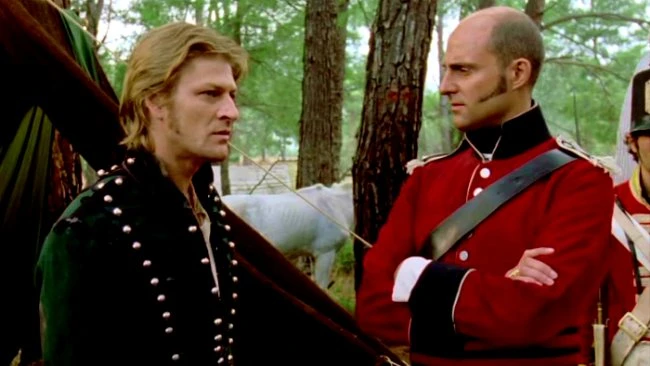
He is also helped and hindered by a succession of Intelligence Officers - played by Brian Cox, Michael Byrne, and James Laurenson - all based loosely on Wellington's real-life spymaster, Sir John Waters. His enemies include the cold-blooded Major Ducos (a chilling turn by French actor Feodor Atkine), the incompetent aristocrat Sir Henry Simmerson (Michael Cochrane), and Sergeant Hakeswill (Pete Postlethwaite, great value as always), a bully and a psychopath who persecuted Sharpe when he was in the ranks.
The casting was in general very strong. A guest slot in Sharpe was something of a rite of passage for rising talent in British acting in the Nineties. Look out for Liz Hurley, Daniel Craig, Mark Strong, Emily Mortimer, Julian Fellowes, James Purefoy, Neil Dudgeon, Paul Bettany, Alexis Denisof, and Alexander Armstrong, among many others.
The sense of period was another strength. Cornwell did his research. The fictional Harris was a tribute to the real-life Rifleman Harris, whose memoirs were obviously one of a number of primary sources at Cornwell's side as he wrote.
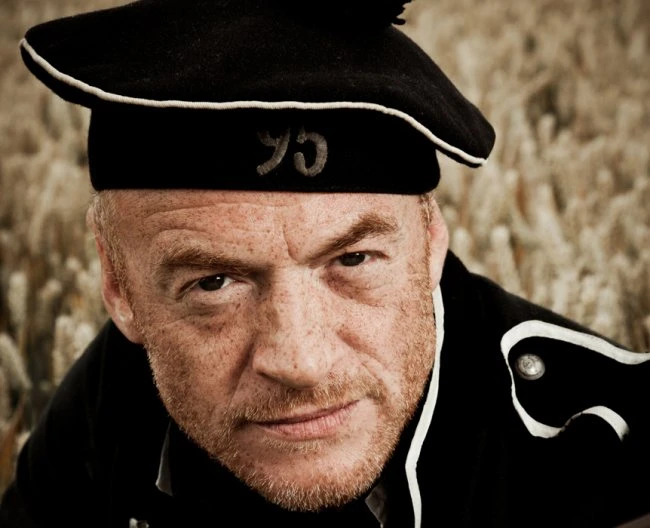
This is reflected in the production values of the series, especially in such details as some of the uniforms. The producers deserve a lot of credit for the ways in which in which they made a relatively modest television budget go a long way - but one can never stop noticing how it was a modest television budget. Admiring the ingenuity with which they tackled big set pieces such as the battles of Talavera and Waterloo is no substitute for feeling caught up in them. Some of the extras are distractingly bad and there is a lot of "There is a huge army just on the other side of the hill" sort of thing.
One can only imagine how much better it would be if made today with the more professional fight arrangement and improved CGI that make battles in the likes of 'Black Sails' and 'Vikings' so impressive.
Apart from that, Sharpe has aged fairly well, as good characters and good stories usually do. The best episodes are those which stay closest to the novels, even if some of them can seem a bit perfunctory if they try to fit in too many subplots. Since there are rarely any big surprises, most can be rewatched time after time without any diminution of pleasure. They were made as entertainment and they continue to entertain. What more can be asked of an action adventure?
Seen this show? How do you rate it?
Seen this show? How do you rate it?
Published on November 4th, 2019. Written by John Winterson Richards for Television Heaven.


